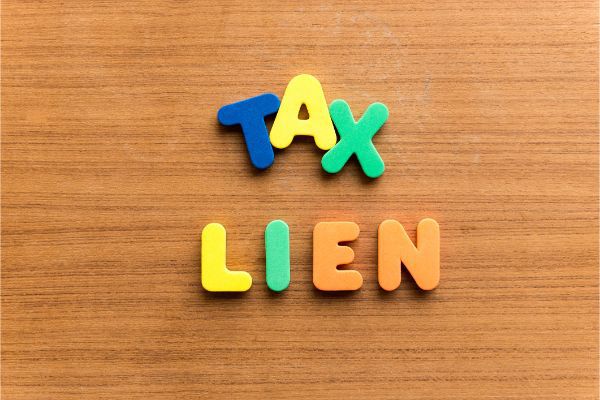All Categories
Featured
Table of Contents
If you are interested in the tax obligation lien repossession process, you ought to get in touch with an attorney so you comprehend and consider the threats of this sort of investment. - how to invest in tax lien
Tax obligation lien sales are one means that cities and regions attempt to recover several of the public bucks they have actually spent maintaining these homes abandoned by personal owners. However, as we'll explain in this post,. Once building tax obligations are considered delinquent, neighborhood governments commonly concentrate on supplying notice of delinquency and trying to gather the unsettled quantities from the owner.
Nevertheless, this process generally takes years. If an owner has strolled away and is unwilling to pay tax obligations or keep the building, the city needs to invest tax dollars to maintain the home. These costsboarding up the building, mowing disordered yard and weeds, reacting to fire and police gets in touch with the home, and moreadd up

Owners who have fallen on tough times definitely need every effort to keep them out of misbehavior and in their homes. However typically, if the residential or commercial property is uninhabited and tatty, we have to think the owner has picked to abandon their interest in the residential or commercial property which they are "resistant" to pay (though circumstances earlier at the same time may have compelled their hand).
Online Tax Lien Investing
Take, for example, a single-family home where the owner has actually time out of mind left. For many years the neighborhood federal government has actually had to tip in and get rid of garbage dumped in the backyard, board up the doors and windows, and reply to telephone calls about immoral task on the building. All these solutions set you back the local federal government taxpayer bucks.
In lots of states, those prices can be accumulated in the same way as the overdue tax obligations, yet not in all. In a tax obligation lien sale (or tax certificate sale) the neighborhood government generally holds a public auction where the winning bidder agrees to pay the most cash for the right to apply the tax lien, starting with a minimal proposal of at least the taxes possessed, plus applicable rate of interest, costs, and costs.

When a government markets the tax lien they are usually marketing to a personal purchaser the regional government's authority to accumulate the financial debt in exchange for ahead of time payment of the tax obligations owed. The purchaser's acquisition generally includes the ability to gain future rate of interest, in addition to redeem relevant costs and prices incurred by the customer, if the home owner pays the tax financial debt.
This is, basically, privatization of a core federal government function: tax obligation collection. Tax obligation lien sales are specifically poor when it concerns uninhabited, abandoned, and tatty properties because they lengthen the period before a residential or commercial property can be moved into the hands of a new, more liable proprietor. Personal tax lien buyers hold the financial debt, however they do not have the titlethe legal right to possession of the propertyand in most cases, they have no passion in obtaining it.
Tax Lien Investment Companies
Taking into consideration budget plan cuts, city governments in lots of states have decreased in-house real estate tax collection and enforcement initiatives and aimed to tax obligation lien sales as a quick infusion of revenue - investing in real estate tax lien (tax lien certificates investing). Numerous areas select or are mandated by the state to offer tax obligation liens since it contracts out collection and usually brings in extremely needed money earlier in the collection process
By transferring the city government's rate of interest in and enforcement of the tax obligation lien to a private customer, regional federal governments lose much of their flexibility: versatility to acquire uninhabited buildings that the private market doesn't want, or to assist the owner avoid losing their building. With vacant residential or commercial properties, there is a much greater opportunity that the exclusive purchaser isn't curious about the home itself.
Tax lien sales can cause damage in historically disinvested areas. In a clinically depressed housing market, less proprietors are able to redeem the amount of the financial debt sold to a tax obligation lien buyer. These areas are ripe for a different type of tax lien investorspeculative proprietors seeking to obtain residential or commercial properties on the economical by confiscating on the residential property tax lien, bleeding what little bit equity is left by renting out a subpar home to prone lessees, and after that abandoning the building when they've made back their investment.

Not all state regulations provide neighborhood governments the power to interfere in this cycle. Either means, the building remains uninhabited and in limbo, all the while imposing substantial prices on its next-door neighbors and taxpayers. It's reasonable that numerous city governments turn to tax lien sales because they help money necessary public services.
If the city government rather sells the home (also known as the "tax obligation action"), instead of the tax obligation financial obligation, then they are in control of what takes place to the home and the enforcement procedure if the proprietor proceeds to not pay the real estate tax owed. The federal government will provide the proprietor a sensible time to pay back the tax obligation financial debt, after which the federal government will certainly foreclose its rate of interest in the tax lien and the owner's right of redemption.
From their beginning, these auctions were places for investors to benefit via exploitation. In early 20th-century cities, infamous "tax sharks" like Chicago's Jacob Glos and New York's Charles Wiltsie collected ton of money by acquiring up ratings of tax obligation liens on homes, billing their proprietors excessively high amounts to get rid of the lien, or waiting until the deadline for negotiation passed and declaring the deed.
What Is Tax Lien Investing

Phone call to abolish tax lien sales and overhaul tax obligation delinquency regulations have occasionally appeared. Commonly, they have actually come in feedback to cases of inadequate, commonly elderly house owners that lost their homes to dishonest tax buyers over tiny tax obligation financial obligations. But with a couple of exceptions, state legislatures have resisted structural reforms.
Those who have actually settled their mortgages (mainly seniors or individuals that had acquired a household home) should also find the money to pay real estate tax. This discusses why 70 percent of the homes cost tax lien sales are possessed outright. It is well hobby for states to embrace an even more humaneand extra effectivesystem for real estate tax enforcement.
Latest Posts
Tax Sale Excess Funds List
Homes Back Taxes
Back Tax Auctions